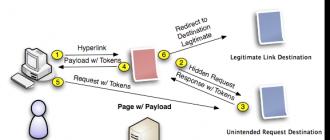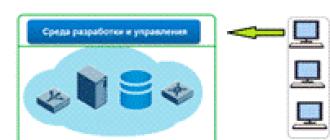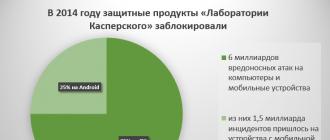To highlight significant events or periods in history, they are commonly referred to as eras. We are already accustomed to the phrases "industrial era", "atomic era", "space era" - they indicate those phenomena of social life that amazed us.
But people usually do not stay under such a strong impression for a long time. Any, even the most important discovery in any area captures their attention only for a while, it marks the beginning of a new "era", but then the ninth wave of another innovation in one area or another rises, erasing this discovery from people's memory. And already another event, in turn, will be significant for them until the same fate befalls it - oblivion.
Eras overlap one another, and we even suspect that there is a kind of competition between them: which of the current events and phenomena of life will stand out more and attract the attention of peoples and governments? It is sometimes difficult for us to accurately date these historical periods; the most we can do is to localize them in a certain century, or even in several decades of one century.
If we say that we live in the information age, that would be partly true. Partly because the "information age" is flourishing at the same time as others who continue to be at the height of popularity. And partly because it is impossible to establish all the details of her birth, nor to accurately characterize her. It is curious that our world, so in love with exact sciences and precise definitions, is forced to put up with such ambiguity, disguising it as certainty.
WHAT IS THE INFORMATION AND WHEN THE INFORMATION TRANSFER BEGAN
Since the beginning of the era of information, there have been a great many definitions of the concept of "information". Informing is no longer just about communicating; Thousands of theories of information transmission have been developed: what facts, how, when, to whom and by what means to communicate ... So it would not be impudent on our part to offer another view of this problem, even if it cannot be called either completely new or completely old.
There is no doubt that informing means bringing something to someone's attention. The methods of informing have changed over the centuries, and systems for transmitting information have always existed, although today's ones are much faster and their range is much larger. It remains for us only to discuss whether they will become more perfect if they are even more improved.
In ancient times, when print media and special devices for transmitting sound and images did not yet exist, all the news sooner or later became known to all people, unless they lived in the most distant, godforsaken corners of the world. The same is happening today - there are corners of the Earth that are unlucky (or lucky?) And whose inhabitants do not know exactly what is happening outside of their little world.
 |
Travelers, warriors, pilgrims, itinerant singers and poets, official messengers or secret agents - they all talked about the events that took place in those cities and villages, palaces and taverns they visited. And just like today, the information was not pure, because the sources from which those who transmitted it drew were not pure. And they themselves could not help adding "salt and pepper" to what they knew - sometimes because of a special personal interest, and sometimes only in order to attract the attention of the public. To report an additional nuance or keep silent about it - just like now ...
Modern means of communication have changed the form of transmission of information, but not its spirit. Ever since printing was invented, and to this day, printed publications have multiplied, radios, televisions, tape recorders, videos, telephones, faxes and a host of other various devices, so wonderful that they can be considered magical, have appeared. They do offer new opportunities - but have the people who use them changed? Are they different from those who once just walked the roads?
MODERNITY AND FREEDOM OF INFORMATION
When it comes to media, it is not easy to establish a common denominator, as different countries have different situations. Where tyrannical regimes dominate, or where, although there is no apparent tyranny, there is control over information, news reflects the interests of certain groups and systematically appears with cuts.
But the advent of democracy had a significant impact on the widespread development and use of communications and influenced the spread of news. Now, much more freely than ever before, they show everything that is happening in the world, praise or criticize, agree or disagree, appeal for justice or ask for support. It is easy to make the public take the side of a certain person, the government, so that it agrees with certain actions, opinions, or opposes them. Yes, information has become one of the forms of expression of freedom, but at the same time it has acquired the properties of the most dangerous weapon. Information can hold the masses, but the one who owns the information has more power than anyone else, because he can cause uncontrollable chain reactions.
 |
History repeats a lot, changing only the details, and one of its inevitable and tragic events is war. How many pages of human life are filled with these waves of violence or heroism, opposition or solidarity! But the war continues, today it is at its apogee, and modernity has created a new weapon for the fight. It is the means of communication and the media that have become one of the most effective types of weapons, since they do not look like weapons, but, on the contrary, look like a means of liberation. However, information can do more harm than war, more than the worst of epidemics - it all depends on how you use it. And we can never be completely sure that those who have access to information will not use it to manipulate public opinion. Yesterday people thought so, today it is different, but tomorrow - who knows? .. If a person has not received a true education of the mind, his opinion, like a kite, will change its direction with every gust of wind.
FORMATION AND INFORMATION
Fantastic advances in communications could be a panacea for humanity. If the means of communication were devoted to the dissemination of education, knowledge, if they made available what the wisest people in the history of mankind thought and created, these means could play a formative role - educational and educational, and not just inform. A wide range of opportunities available to them, a huge number of people of all ages and living in different conditions to which they reach - all this could turn them into a real school of upbringing and education, worthy of the level of development of society that we call civilization.
But no. The tasks of the means of communication are reduced to informing, and in some cases to depressing deformation.
Let's see what this leads to in many cases.
Incomplete information
Although very few people dare to mention bills and censorship, they exist, for sure. But since they were previously accepted by someone and agreed with someone, what remains reaches people, including a whole scheme of arguments designed to fill in the voids that would otherwise be obvious.
Conflicting information
 |
When there are so many media outlets all over the world at the same time, it is not strange that the opinions expressed by them do not coincide, creating confusion in the minds of people. As a result, a person becomes someone's supporter, not really knowing why and why, or, conversely, loses interest in what, one way or another, should affect everyone.
Disinformation as a means of manipulation
Sometimes what the media give out is completely contrary to reality; the point is not that we are provided with a lot or little information, but that false ideas are created that differ significantly from what actually happens. Why is information being manipulated? Because freedom is good until it ceases to be freedom. Or until she gets in the way. Or it has not yet been discovered that freedom also gives rise to distortion of the truth, if it is understood in a broad sense: "everyone does what he wants."
Inappropriate information
Mass information production allows at any moment and by any means to distribute any news, regardless of who receives it. Our children absorb an endless amount of vileness, as if it were the most natural thing in the world; lunch and dinner hours coincide with newscasts, which show the most egregious atrocities, accompanied by reserved words and eerie images; before going to bed, we receive a summary of all the disasters of this day, and wake up to the forecast of new disasters.
Scandals and exaggerations
 |
Competition requires an information product to look attractive. Therefore, it must be allocated at any cost. There is nothing easier than arousing an unhealthy interest sleeping in people, and this has already been achieved: the one who talks about the loudest scandal, the one who can reveal the secret of someone's personal life, get the most shameless photo or quote words that never pronounced, is a success. They make an elephant out of a fly, and besides, they assure that they personally saw this elephant and rode on it ... The truth is made out of hearing, out of suspicion - guilt. Let those who can defend themselves - it is always easier to slander than to prove the innocence of an unjustly accused. And curiously enough, good and honest professionals suffer from this style of unhealthy information, who, unwillingly, find themselves pushed aside by a community of manipulators and detractors.
We could continue the list, but we think that these examples are enough to demonstrate that in our modern world the media do not shape, but, on the contrary, deform the personalities of people.
WHAT THE INFORMATION CAN DO
What will be discussed below, although it may seem like praise to the censorship, has a completely different rationale. We are not talking about the need to deprive people of the right to know what is happening, but about the fact that it is necessary to prepare in advance, train them so that they are able to recognize and understand.
In other words, news should not travel uncontrollably. Yes, of course, given the rhythm in which our life passes, we must every day find out what is happening around the world, because what concerns a few, in the end, will affect everyone to a greater or lesser extent. But there is a huge distance from this to the need to make public all the gloomy events taking place in the world. The point is that in conquering the land, information must take up more and more space, and news is well suited for this. And when there is no news, you have to look for it, invent it or turn it into news, the most absurd fact, resorting to cheap psychological tricks.
Today on sale - violence, sex, crime, corruption, fanaticism ... And everything that happens must necessarily comply with fashion standards. And we shouldn't be surprised that young people try to imitate what they see on the news. We should not be surprised that children from a very early age become insensitive and calmly watch the worst acts of vandalism and aggression; for them - and for many who have ceased to be children - the hero is a rude and cunning man, and the rest are sentimental fools out of fashion. Even cartoons sow fear and horror, and you have to look for love and understanding from aliens, as if there was no love on earth or never was ...
 |
It is enough that tragic events occur, this is already a misfortune, and there is no need to exaggerate them in the media. You can't even say that this is shown as an example - to prevent such cases. The opposite happens: in a world that shines with the absence of deep morality, the criminal becomes an example to follow. We are shown crimes, but not punishments; we are told about horrors and abominations, but not about their suppression. We learn about the bad that was good yesterday and the good that was bad before. And we no longer know who is who; on the contrary, we are given to understand that you can be anyone, just to stand out.
We believe that information, like any kind of human activity, has its limit - not the one that is imposed by the censorship of certain mentalities, but the one that has been established by life itself. All of us during the day spend part of the time with someone, manifest ourselves outside, and spend part of the time alone - these are our personal hours. While fashion imposes on us the wild habit of flaunting everything, the bathroom will never be equated with the library, and showering with the concert. Books, music - we can share them with someone, but a shower is for personal hygiene, and there is no need to announce publicly about every particle of dirt that we wash off our body.
In fact, we just want better quality information - good, healthy, valuable, which helps to create, live and improve, win ourselves. After all, we would all like it if culture occupied the same space as ignorance, dullness, banality - since we cannot fill everything with culture. We would love it if good deeds and good words became more prestigious than rudeness, if subtle feelings were more respected than brutality and cruelty. Yes, we would love all this. And the best thing is that we have the means to do it!
After all, although we sometimes forget about it, we live in the era of information.
for the magazine "Man Without Borders"
From Wikipedia, the free encyclopedia
The growing role of information as a resource has led to the official recognition of a new type of war by the world's leading states - information wars. Information warfare), the purpose of which is not to physically destroy the enemy, but using information (information operations, psychological operations) to obtain and consolidate a competitive advantage over him, that is, to make the enemy dependent in terms of his own information self-sufficiency, to impose on him the use of such information resources that would be turn served their own interests (state or corporation).
Challenges and trends
These changes have not only brought new challenges to humanity associated with the directly proportional dependence of the intensity of informatization and urbanization with an increase in the number of diseases associated with physical inactivity and constant stress of the city dweller (total "obesity" of the inhabitants of developed countries), but also made it possible as never before to implement the provisions of the ancients thinkers of humanity - first of all, the introduction of positive aspects of concepts such as the noosphere and co-evolution.
Choosing the right information is one of the challenges. Waves of spam and flooding (not only on the Internet, but also in the media) sometimes make getting really necessary, useful information a difficult task. And the widespread use of computer technology poses a number of new challenges to the information security of individual organizations, individuals and entire states (see competitive intelligence, industrial espionage, cyberwar).
The use of network technologies (based on information) made possible not only the total pooling of the resources of all mankind, but also terrorist acts unprecedented in the history of mankind (9/11, The Tragedy of Nord-Ost, Explosions in the London Underground). Terrorism has become a serious problem.
see also
Write a review on the article "Information Age"
Notes (edit)
Literature
Excerpt from the Information Age
The conversation did not subside throughout the evening, focusing mainly on political news. At the end of the evening, he became especially animated when it came to the awards bestowed by the sovereign.- After all, last year I received NN a snuff-box with a portrait, - said l "homme a l" esprit profond, [a man of deep mind] - why can't SS get the same award?
- Je vous demande pardon, une tabatiere avec le portrait de l "Empereur est une recompense, mais point une distinction," said the diplomat, un cadeau plutot.
- Il y eu plutot des antecedents, je vous citerai Schwarzenberg. [There were examples - Schwarzenberg.]
- C "est impossible, [This is impossible,] - another objected.
- Bet. Le grand cordon, c "est different ... [Tape is a different matter ...]
When everyone got up to leave, Helene, who had spoken very little all evening, again turned to Boris with a request and a gentle, significant order that he should be with her on Tuesday.
“I really need this,” she said with a smile, looking back at Anna Pavlovna, and Anna Pavlovna with that sad smile that accompanied her words when speaking about her high patroness, confirmed Helene's desire. It seemed that on that evening, from some words spoken by Boris about the Prussian army, Helene suddenly discovered the need to see him. She seemed to have promised him that when he arrived on Tuesday, she would explain this necessity to him.
Arriving on Tuesday evening at Helene's magnificent salon, Boris did not receive a clear explanation of why he needed to come. There were other guests, the Countess spoke little to him, and only saying goodbye, when he kissed her hand, she, with a strange lack of a smile, unexpectedly, in a whisper, said to him: Venez demain diner ... le soir. Il faut que vous veniez ... Venez. [Come to dinner tomorrow ... in the evening. You need to come ... Come.]
On this visit to St. Petersburg, Boris became a close friend in the house of Countess Bezukhova.
The war was flaring up, and its theater was approaching the Russian borders. The curses to the enemy of the human race, Bonaparte, were heard everywhere; warriors and recruits gathered in the villages, and contradictory news came from the theater of war, as always false and therefore differently interpreted.
The life of the old prince Bolkonsky, prince Andrei and princess Marya has changed in many ways since 1805.
In 1806, the old prince was appointed one of the eight commander-in-chief of the militia, then appointed throughout Russia. The old prince, despite his senile weakness, which became especially noticeable at the time when he considered his son killed, did not consider himself entitled to resign from the position to which he had been determined by the sovereign himself, and this activity, which was newly revealed to him, excited and strengthened him. He constantly traveled to the three provinces entrusted to him; he was meticulous in his duties, strict to the point of cruelty with his subordinates, and he himself went to the smallest details of the case. Princess Marya had already ceased to take mathematics lessons from her father, and only in the morning, accompanied by a nurse, with little Prince Nikolai (as his grandfather called him) entered his father's study when he was at home. Chest Prince Nikolai lived with the nurse and nanny Savishna in the half of the late princess, and Princess Marya spent most of the day in the nursery, replacing, as best she could, her mother for her little nephew. M lle Bourienne, too, seemed to be passionately in love with the boy, and Princess Mary, often depriving herself, yielded to her friend the pleasure of nursing the little angel (as she called her nephew) and playing with him.
At the altar of the Lysogorsk church there was a chapel over the grave of the little princess, and a marble monument brought from Italy was erected in the chapel depicting an angel spreading his wings and preparing to rise to heaven. The angel's upper lip was slightly raised, as if he was about to smile, and once Prince Andrey and Princess Marya, leaving the chapel, confessed to each other that it was strange, the face of this angel reminded them of the face of the deceased. But what was even stranger, and what Prince Andrew did not tell his sister, was that in the expression that the artist accidentally gave to the face of an angel, Prince Andrew read the same words of meek reproach that he read then on the face of his dead wife: “Oh, why did you do this to me? ... "
Soon after the return of Prince Andrey, the old prince separated his son and gave him Bogucharovo, a large estate located 40 miles from the Bald Mountains. Partly because of the difficult memories associated with Bald Hills, partly because Prince Andrey did not always feel able to endure his father's character, partly because he needed solitude, Prince Andrey took advantage of Bogucharov, built there and spent most of time.
Prince Andrew, after the Austerlitz campaign, firmly decided never to serve again in military service; and when the war began, and everyone had to serve, he, in order to get rid of active service, took a position under the command of his father in collecting the militia. The old prince and his son seemed to have changed roles after the 1805 campaign. The old prince, excited by activity, expected all the best from this campaign; Prince Andrew, on the contrary, not participating in the war and secretly regretting that, saw one bad thing.
On February 26, 1807, the old prince left for the district. Prince Andrew, as for the most part during his father's absences, remained in Bald Hills. Little Nikolushka was unwell for the 4th day. The coachmen who drove the old prince returned from the city and brought papers and letters to Prince Andrei.
The valet with letters, not finding the young prince in his study, walked halfway through Princess Marya; but he was not there either. The valet was told that the prince had gone to the nursery.
“Please, your Excellency, Petrusha has come with the papers,” said one of the girls of the nanny’s assistants, addressing Prince Andrei, who was sitting on a small children's chair and, with trembling hands, frowning, dripped medicine from a bottle into a glass half filled with water.
- What? - he said angrily, and inadvertently trembling with his hand, poured an extra amount of drops from the glass into the glass. He threw the medicine out of the glass on the floor and again asked for water. The girl handed it to him.
In the room there was a cot, two chests, two armchairs, a table and a children's table and a high chair, the one on which Prince Andrey was sitting. The windows were hung, and a single candle burned on the table, filled with a bound music book so that no light fell on the crib.
“My friend,” Princess Marya said, addressing her brother from the crib she was standing at, “it's better to wait ... after ...
“Oh, please, you’re still talking nonsense, you’ve been waiting for everything, so you’ve waited,” said Prince Andrei in an embittered whisper, apparently wanting to prick his sister.
“My friend, it’s better not to wake him up, he fell asleep,” the princess said in an imploring voice.
Prince Andrey got up and, on tiptoe, with a glass, went to the bed.
- Or definitely not wake up? He said hesitantly.
“As you wish — right… I think… but as you wish,” said Princess Marya, apparently shy and ashamed that her opinion had triumphed. She pointed out to her brother the girl who had summoned him in a whisper.
It was the second night that they both did not sleep, caring for the boy who was burning in the heat. All these days, not trusting their home doctor and waiting for the one for whom they were sent to the city, they tried this or that remedy. Exhausted by sleeplessness and anxious, they dumped their grief on each other, reproached each other and quarreled.
- Petrusha with papers from papa, - the girl whispered. - Prince Andrew went out.
This is a historical period in which human society carries out its activities "within the framework of a theoretical paradigm determined by information communication technologies, which are based on electronics and genetic engineering." The information age is characterized by extensive reproduction of information and knowledge; the economy is global and has an informational character, that is, the availability of timely and necessary information becomes a factor in the successful competition of organizations.
The development of information technologies, new methods of communication requires the creation of a flexible network management structure in the socio-economic system, an orientation towards innovation, information, intellectual property, new technologies for organizing business processes, delegation of authority, responsibility, independence of the elements of the organization under a single culture.
Changing the structure of the socio-economic system is impossible without changing the organizational culture, since, as mentioned above, the organizational culture has a structure-forming function, and, in addition, has a direct impact on the process of self-organization of the system.
The organizational structure can be of two types: traditional hierarchical and networked. Hierarchical structures are the most common linear-functional, divisional structures. Networking relies on the interaction of elements and horizontal connections.
A change in the structure is associated with a change in the connections and relationships between elements: their interactions, risk distribution, etc.
So, if in traditional hierarchical structures the risk is minimized by unification, strict control, then in network structures the risk is distributed among the elements of the organization. Risk sharing, flexibility of diverse relationships and cultural cohesion ensure the stability and survival of the system, despite external shocks and changes.
Examples of such a structure include churches, well-functioning firms, informal organizations, and communities of people. If in the old management system the emphasis was placed on vertical ties and hierarchy, then in the new management model the emphasis should be placed on horizontal ties, which will provide the necessary share of independence to the members of the organization.
It should be noted that flexible structure does not imply a lack of structure. There is no hierarchy in the network management model, but there are
different levels, and they are determined not by the position held, a step in the hierarchy, but by professionalism, competence.
In the modern conditions of the functioning of organizations, labor relations are changing (that is, the relations between the elements of the social system change their character): the significance of social status, position becomes less than the possession of information, and professionalism. Information technology allows workers of many specialties to be outside the workplace, outside the organization, and even outside the city and country.
Thus, in the formation and development of organizational culture, it should be borne in mind that it directly affects the structure of the socio-economic system, forms new relationships and connections between people as elements of the system.
The current state of world military and political thought is characterized by the presence of many concepts of military development, giving priority importance to information technology. The most famous and developed are the concepts of information warfare, network warfare, network-centric warfare, cyber warfare, a number of concepts of asymmetric conflict, "new wars" and (to a lesser extent) postmodern warfare.
Information war concept
In the late 1980s-1990s. in literature, mainly journalistic, the term arose "Information wars". So far, there is no definition of this term in international law, and various national departments (for the most part - power) in their strategic documents emphasize the military-political aspect of this concept.
As Alvin and Heidi Tofflers wrote in their work "War and Antiwar", the history of war can be divided into three large periods corresponding to the history of the development of human civilizations: agrarian, industrial and informational. In accordance with the Toffler model, future wars for civilizations of the third, information wave should take the form of information wars based on perfect communication systems, access to space and real-time decision-making. This means that information wars are characteristic only of the information society.
M. Castells in his work "Information Age: Economy, Society, Culture" talks about "instant wars". This is how he calls the wars that, after the end of the Cold War, the powers waged with short, decisive attacks, using new technologies, and which the media presented to the whole world in a “sterile” form (ordinary, wars continued, but on the periphery). Castells believes that this is the end of traditional wars. For most of history, he says, at least in Europe, war has been a necessary "rite of passage" and has served as a constant reminder of human mortality as well as a reference point for survivors. Now it is a thing of the past. In addition, the networked society, with its emphasis on instant communication, can gather information almost at lightning speed across the globe and transmit it using hypermedia, which make “forays” into history without placing historical fact in historical context, leaving us in a “timeless mental landscape ". And it all comes together in the culture of a networked society, which means "systemic disorder", constant instantaneousness and spontaneity.
For the first time the term "information war" appeared in the mid-1980s. in connection with the new tasks of the US Armed Forces in the conditions
Of the Cold War and was the result of the work of a group of American military theorists consisting of G. Ackles, G. Summers and others. Later, the term began to be actively used after the Operation Desert Storm in 1991 in Iraq, where new ICTs were for the first time used for military purposes.
Until the present stage, information warfare was only part of conventional warfare, defined strictly in terms of force. Now the humanitarian, economic, and legal aspects of information confrontation are coming to the fore, and information wars are becoming a special type of war that can be waged separately from military operations. Now a situation is possible when there is an information war, but there is no military action, but not vice versa, since military actions have become inseparable from an information war.
The correctness of the use of the term "information war" is rather controversial and is not used by all scientists. Often this term is replaced by the term "information warfare", because information war is a more complex concept and implies the involvement of the entire population and all state resources in it. V. Pirumov defines information warfare as a new form of struggle between two or more parties, which consists in the purposeful use of special means and methods of influencing the enemy's information resources, as well as in protecting one's own information resource in order to achieve the assigned goals. According to S. Rastorguev, information war is open and hidden purposeful informational impacts of information systems on each other in order to obtain a certain gain in the material sphere. But practically any action of informational and psychological influence falls under this definition. One of the signs of an information war can be the fact that information weapons are being used. Another sign of information-psychological warfare is a special organizational form of implementation of intentions, characteristic only of war, - covert operations.
Information warfare can include diplomacy, propaganda and psychological campaigns, political and cultural subversion, the use of local media to publish false information, infiltration of information networks and databases, and the promotion of opposition or dissident movements through computer networks. Among the main methods are disinformation, lobbying, propaganda, blackmail, cyber terrorism and manipulation.
Information warfare differs from computer crimes in that it involves hostile action by an adversary - be it a private individual, a rival organization, or a hostile state - in the struggle for hegemony in a market or political arena. W. Schwartau in his work "Information war: chaos on the electronic superhive" defined information war as an electronic conflict in which information is a strategic asset worthy of conquest or destruction. In this case, information should be both the goal and the means in the information war.
According to the least contested definition of information war (which was given by R. Shafransky), information war is the use of information weapons to influence the knowledge systems and perceptions of the enemy. Even primitive societies can be influenced by information warfare.
M. Libicki from the US National Defense University singled out seven forms of information warfare:
- 1) the war of "means of command and control", which is associated with the use of material force;
- 2) knowledge-based warfare, which consists of the design, defense and reflection of systems that seek knowledge that can provide dominance in space;
- 3) electronic warfare, where radio, electronic or encryption methods are used;
- 4) psychological warfare, where information is used to influence the consciousness of friends, neutral parties and opponents;
- 5) "hacker war", where it is computer systems that are attacked;
- 6) economic information war aimed at blocking information or its movement in order to ensure economic superiority;
- 7) cyber warfare: a combination of the previous six methods.
Based on the studies already carried out, several the main characteristics of information warfare.
- 1. Waging an information war is cheap enough. Although it must be admitted that now there is a tendency for such wars to rise in price due to the growing demand for their means of waging, but in terms of the overall level of investment in their organization, they are still relatively cheap. Unlike traditional military technologies, information technologies do not require mandatory government support.
- 2. The traditional distinctions between public and private interests, between military actions and criminal behavior are being erased. Recognized interstate borders are being erased.
- 3. Industrialized states are the most vulnerable to information attacks. For example, the United States is the most developed, but at the same time the most vulnerable country in the information sphere, since its economy, politics, diplomacy and other spheres are highly dependent on information technologies and systems, and their destruction threatens to collapse the entire life-supporting infrastructure of internal security. These concerns are reflected in the National Homeland Security Strategy.
However, there is also an alternative approach to the essence of information conflicts. Former National Security Agency confidant Lawrence Greenberg identified three main features of the war:
- 1) physical destructive action;
- 2) territorial seizure;
- 3) the military nature of the target.
In general, in relation to the concept of "information war", its researchers can be divided into three main groups:
- ? socio-communicative approach (reduces everything to separate information methods of conducting interstate confrontation, communication technologies of influencing the mass consciousness);
- ? the military-applied approach (representatives of the military departments consider information warfare as an integrated joint use of forces and means of information and armed warfare);
- ? geopolitical approach (he considers information war to be a phenomenon of an outwardly peaceful period of interstate confrontation, which allows solving foreign policy problems in a non-violent way in the traditional sense, that is, the method of geopolitical confrontation).
However, it seems necessary to consider the concept of information war complex, not being limited to one or another particular aspect of it. As the American expert Martin Libitsky writes, “attempts to comprehend certain facets of information warfare can be compared to the efforts of the blind trying to understand what an 'elephant' is. The one who touched his leg called him a tree; the one who touched the tail called it a rope, etc.<...>... Those who give too broad a definition cannot highlight the essential features of this concept (they give a definition of the type “information war is something that includes information and war”), and those who highlight some separate aspect of information wars, overestimate its value too ".






